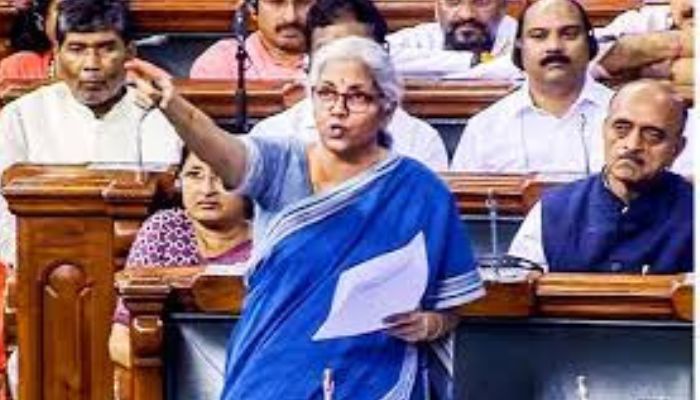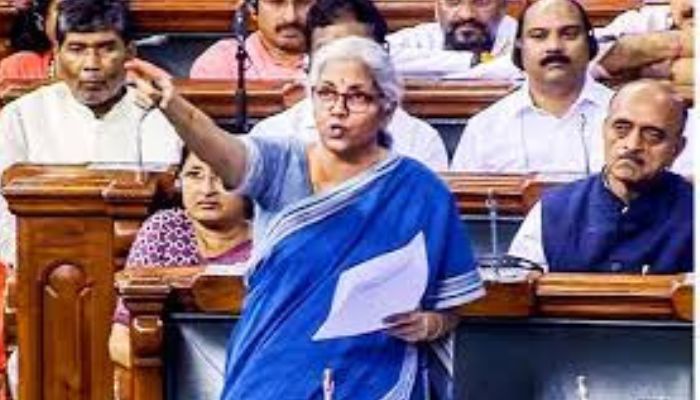Are you grappling with prolonged tax disputes, navigating the complexities of legal battles in High Courts and the Supreme Court? Good news awaits – taxpayers in India can now proactively expedite the resolution process by withdrawing their court cases and opting for the faster track provided by the Goods and Services Tax (GST) Appellate Tribunals. Let's delve into the key aspects of this transformative development.
| Table Section |
|---|
| 1. Introduction |
| 2. Need for Speed |
| 3. Withdrawal Power |
| 4. Accessing the Featurey |
| 5. Legislative Amendments in Motion |
| 6. Provisional Collection of Taxes Bill, 2023 |
| 7. Simplifying Taxation: A Broader Perspective |
| 8. FAQs |
| 9. Conclusion |
Need for Speed:
Tax disputes can be time-consuming, causing unnecessary delays and headaches for businesses. The establishment of GST Appellate Tribunals addresses this concern, promising a more efficient and accelerated resolution mechanism for GST-related cases.

Withdrawal Power:
Empowering taxpayers, Finance Minister Nirmala Sitharaman encourages them to withdraw ongoing GST cases from the higher echelons of the judiciary and reroute them to the specialized GST Appellate Tribunals. This proactive approach allows for a swifter and more focused resolution process.
State-Wise Accessibility:
Recognizing the diverse needs of taxpayers across states, the government's initiative includes the setup of two benches for each state. This ensures accessibility with a bench in the state capital and another strategically located in key commercial centers, minimizing logistical challenges.
Legislative Amendments in Motion:
Recent amendments to the central GST law, passed by the Lok Sabha, set the stage for the operationalization of GST Appellate Tribunals. These amendments align with the Tribunal Reforms Act of 2021, demonstrating a commitment to an efficient and effective dispute resolution process.
Provisional Collection of Taxes Bill, 2023:
In tandem with the focus on GST tribunals, the Lok Sabha has greenlit the Provisional Collection of Taxes Bill, 2023. This legislation addresses speculative trading activity by providing immediate effect to changes in customs and excise duties, strengthening the tax administration system.
Simplifying Taxation: A Broader Perspective:
Finance Minister Sitharaman acknowledges concerns about the complexity of multiple tax rates under GST. However, she emphasizes that the ongoing work of rate rationalization is part of a comprehensive exercise by the GST Council, showcasing a commitment to simplifying the tax structure.
(FAQ)
Q:1 Why should taxpayers consider withdrawing their court cases and approaching GST Appellate Tribunals?
A: Taxpayers can benefit from faster and more efficient resolution of GST-related disputes by opting for the specialized forums provided by GST Appellate Tribunals. This proactive approach helps navigate the complexities of legal battles, ensuring a swifter resolution.
Q:2 How does the establishment of state-wise benches contribute to accessibility for taxpayers?
A: To cater to the diverse needs of taxpayers across states, the government has ensured the setup of two benches for each state, strategically located in the state capital and key commercial centers. This initiative minimizes logistical challenges and enhances accessibility.
Q:3 What legislative amendments have been passed to facilitate the operationalization of GST Appellate Tribunals?
A: The Lok Sabha recently passed amendments to the central GST law, aligning with the Tribunal Reforms Act of 2021. These amendments pave the way for the efficient and effective functioning of GST Appellate Tribunals.
Q:4 How does the Provisional Collection of Taxes Bill, 2023, contribute to strengthening the tax administration system?
A: The Provisional Collection of Taxes Bill, 2023, addresses speculative trading activity by providing immediate effect to changes in customs and excise duties. This legislative move strengthens the tax administration system, contributing to more robust tax practices.
Q:5 What is the broader perspective on simplifying taxation mentioned by Finance Minister Sitharaman?
A: Finance Minister Sitharaman acknowledges concerns about the complexity of multiple tax rates under GST. She emphasizes that the ongoing work of rate rationalization is part of a larger exercise undertaken by the GST Council, demonstrating a commitment to simplifying the overall tax structure.
Q:6 Can taxpayers expect a streamlined and transparent resolution process by embracing GST Appellate Tribunals?
A: Yes, by withdrawing from higher courts and opting for GST Appellate Tribunals, taxpayers can strategically position themselves for a faster and more transparent resolution process. This choice allows businesses to focus on growth and prosperity rather than prolonged legal battles.
Q:7 What powers do taxpayers have in withdrawing their ongoing GST cases from higher courts?
A: Taxpayers have been empowered to proactively withdraw their ongoing GST cases from High Courts and the Supreme Court. This flexibility allows them to redirect their cases to the specialized GST Appellate Tribunals, indicating a shift towards a more focused and efficient resolution process.
Q:8 How does the state-wise distribution of benches in GST Appellate Tribunals address the needs of taxpayers across different regions?
A: To address the diverse needs of taxpayers, the government has announced the establishment of two benches for each state. These include one bench in the state capital and another in key commercial centers, ensuring that taxpayers can access the tribunal without significant logistical challenges, irrespective of their location.
Q:9 What role does the Tribunal Reforms Act of 2021 play in the alignment of the central GST law with the establishment of GST Appellate Tribunals?
A: The Tribunal Reforms Act of 2021 serves as the guiding framework for amendments made to the central GST law. These amendments are crucial for aligning the eligibility and age norms for members and the President of the Appellate Tribunals, ensuring a standardized and effective operationalization process.
Q:10 How does the commitment to rate rationalization by the GST Council contribute to simplifying the tax structure?
A: The commitment to rate rationalization by the GST Council is part of a broader exercise to simplify the tax structure. Despite administrative considerations and changes in government, this ongoing work aims to streamline and rationalize multiple tax rates, providing a more straightforward and transparent taxation system.
Conclusion:
As a taxpayer navigating the intricate landscape of taxation, the choice to withdraw from higher courts and embrace GST Appellate Tribunals is a strategic move towards a faster and more transparent resolution. With state-wise accessibility, legislative support, and a larger commitment to simplifying the tax framework, businesses can now optimize their dispute resolution process, focusing on growth and prosperity rather than prolonged legal battles. Explore the efficiency of GST Appellate Tribunals – the future of streamlined tax dispute resolution awaits.


